Masonry Features for Your Outdoor Living Space in NY
You’re dreaming of the perfect outdoor space—a deck where summer evenings linger. A porch that welcomes you home. A patio that feels like a hidden retreat.
But here’s the thing—good design is more than just wood and railings.
If you're still in the planning phase, now’s the time to think bigger. Adding masonry features like stone columns, brick accents, or stamped concrete can elevate your outdoor living space from nice to unforgettable.
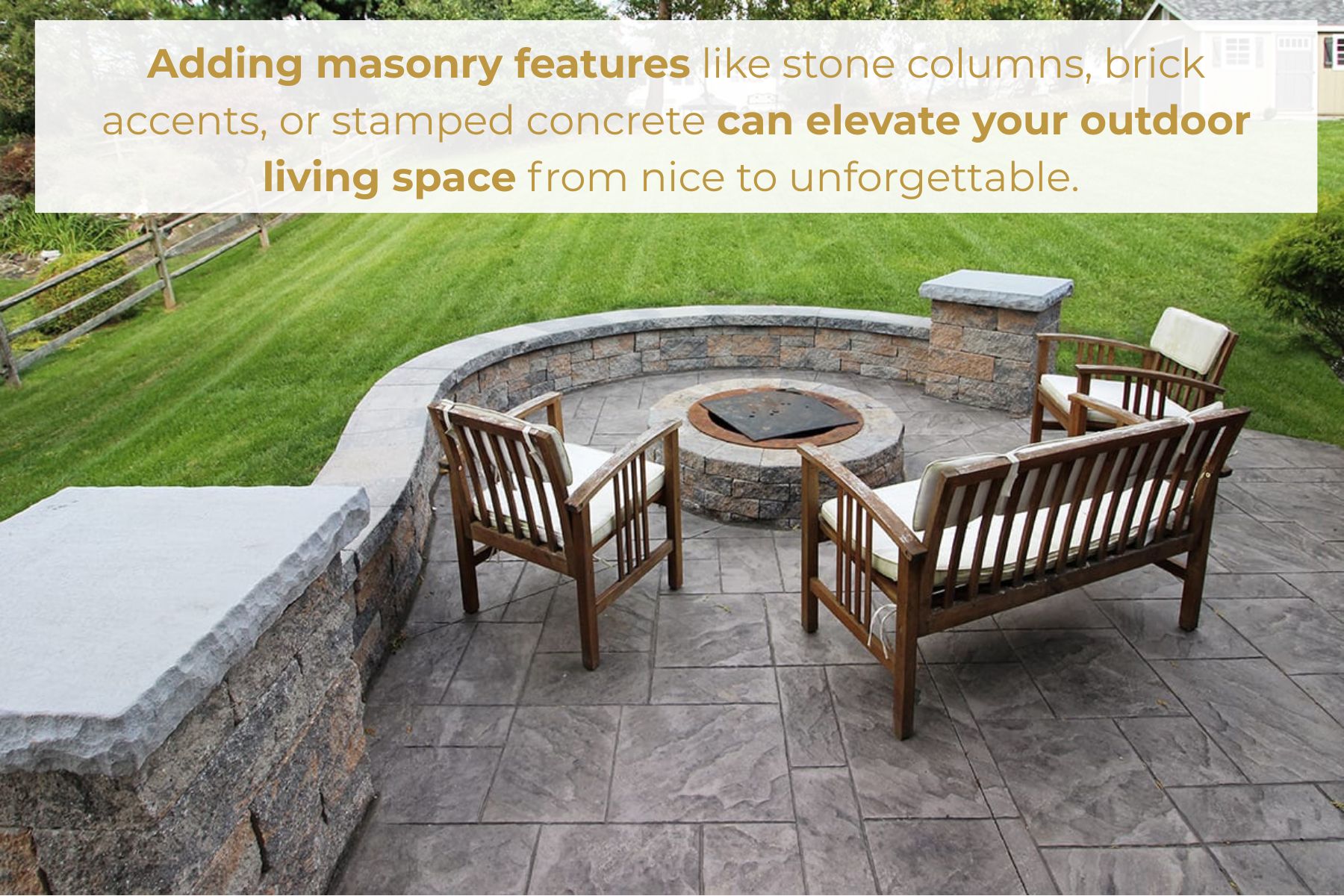
In this guide by Keystone Custom Decks, we’ll cover the most popular masonry options, smart ways to integrate them, and how to make sure your space stays strong and stunning through every New York season.
Because when it comes to outdoor design, you want something that rocks!
Popular Masonry Options
There’s more than one way to lay a stone. Knowing your options helps you choose the one that fits your style, space, and budget.
Here are a few popular masonry materials homeowners across New York are loving right now:
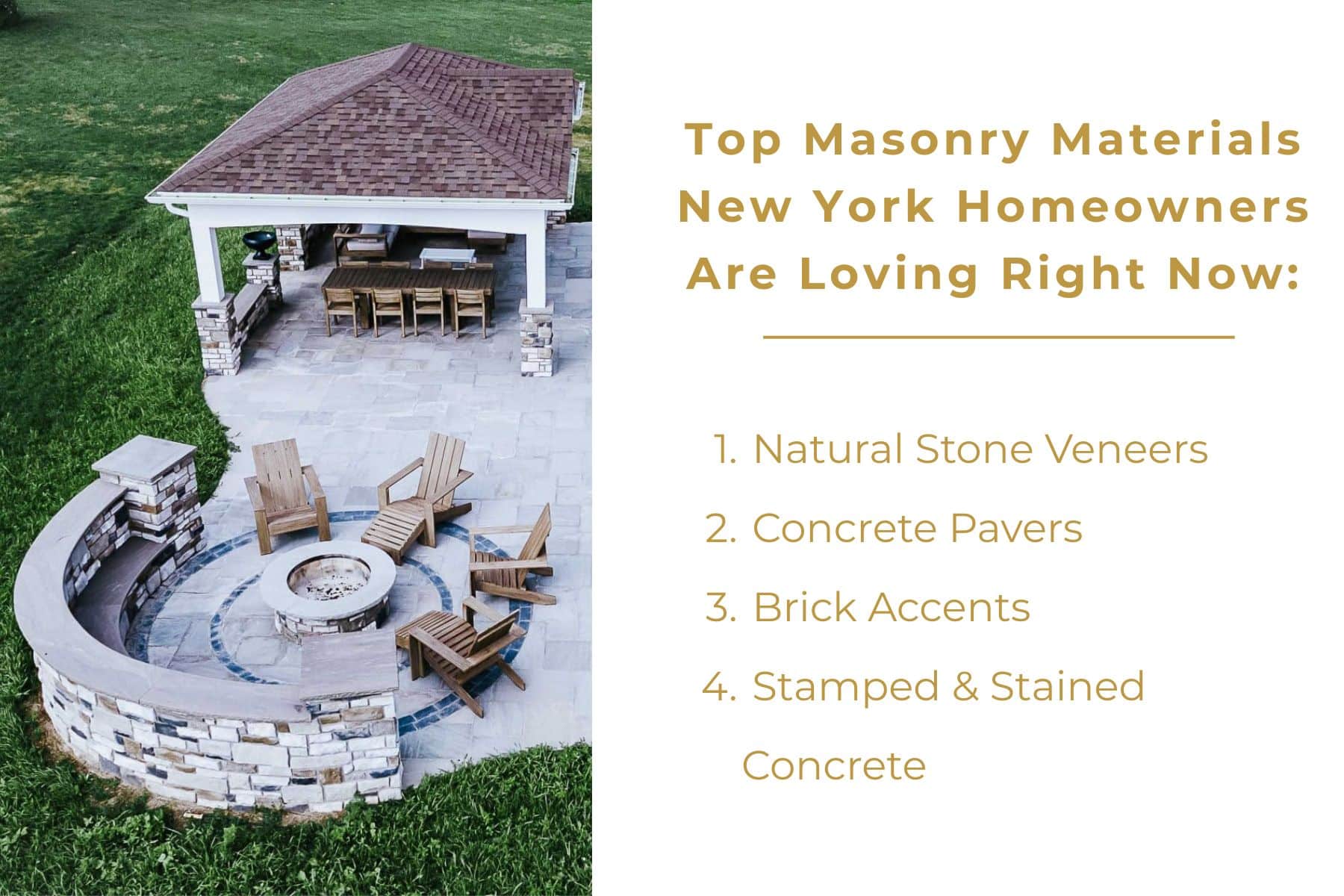
1. Natural Stone Veneers
Think of stone veneer as the stylish jacket your home’s exterior didn’t know it needed. Stone veneers are thin slices of natural rock—slate, granite, fieldstone—that you apply over wood or concrete structures. You get the rustic charm of stone without the weight or cost.
Perfect for columns, fire pits, or adding a nice touch to outdoor kitchens.
Bonus: They age like fine wine. (Just don’t try to drink them.)
2. Concrete Pavers
Concrete pavers are affordable, durable, and easy to replace individually if needed.
Concrete pavers are the workhorse of hardscaping. They come in a variety of sizes and shapes, allowing you to get creative with patterns.
Concrete truth? They’re one of the most versatile choices out there.
3. Brick Accents
Brick is classic and timeless, especially if your home already has brick elements.
Use brick to line your patio, wrap columns, edge your steps, or build short retaining walls. You can even mix brick with other materials to create a contrasting effect.
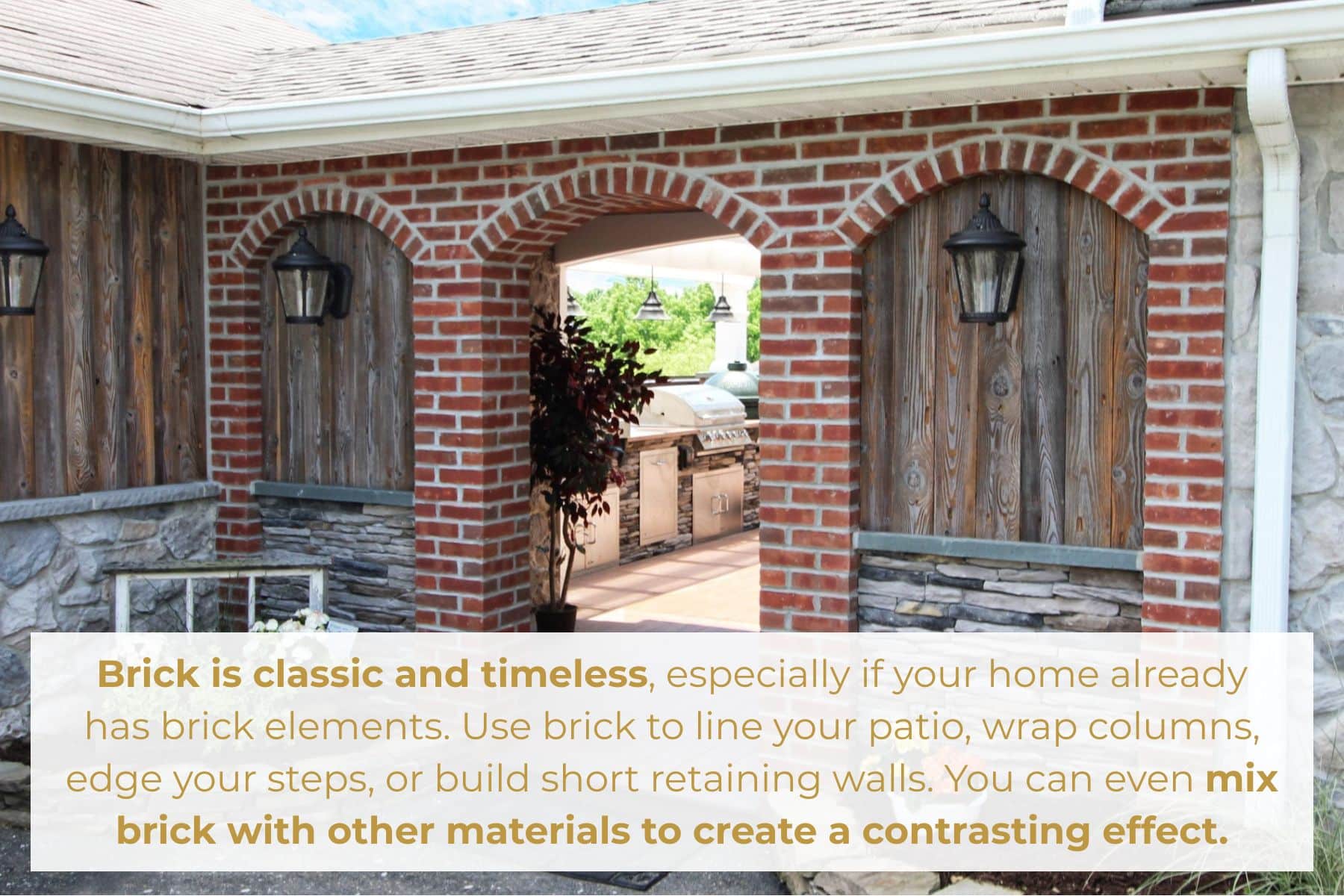
4. Stamped and Stained Concrete
Want the look of stone or tile without the price tag? Stamped concrete is your best friend.
It’s poured like regular concrete, then patterned and colored to mimic more expensive materials. From slate to cobblestone to wood plank patterns—it’s a bit like a chameleon in your backyard.
Just don’t let it fool you into thinking it doesn’t need sealing (more on that later).
Integrating Masonry into Your Space
Masonry should blend seamlessly with your existing structures, not feel like an afterthought. Here’s how New York homeowners are weaving stone, brick, and other materials into their deck designs:
1. Deck Skirting & Columns
Tired of that gaping space underneath your deck? Masonry skirting—like stone veneer or brick—can completely transform that eyesore into a sharp, polished feature. It hides the mess, deters critters, and adds visual weight that makes your deck feel grounded and intentional.
If your deck design includes posts or columns, you’ve got a golden opportunity. Wrapping those vertical supports in stacked stone, brick, or even stamped concrete adds instant character and durability.
2. Porch Flooring & Steps
Replace tired wood porch steps with stone or stamped concrete.
Not only does it add texture and interest, but it holds up better in snowy NY winters. And we all know winter’s not shy around here.
Steps and landings are high-traffic. Make them durable and beautiful.
3. Patio Hardscapes
There are plenty of ways you can use masonry for your patio. For instance, you can break up large surfaces with mixed materials, brick borders, or built-in seating made from concrete block. Or add a fire pit centerpiece. Or a pizza oven, if you're feeling fancy (and hungry).
You could even consider adding a complete outdoor kitchen to your NY home!
A well-designed patio should feel like a room, with “walls” and edges—even if it’s under the sky. Masonry features, such as walls or even pillars, can help you attain this feel.
4. Retaining Walls
If your backyard isn’t level, a retaining wall can solve drainage issues and double as a seating area. In some yards, they are essential for the space's functionality.
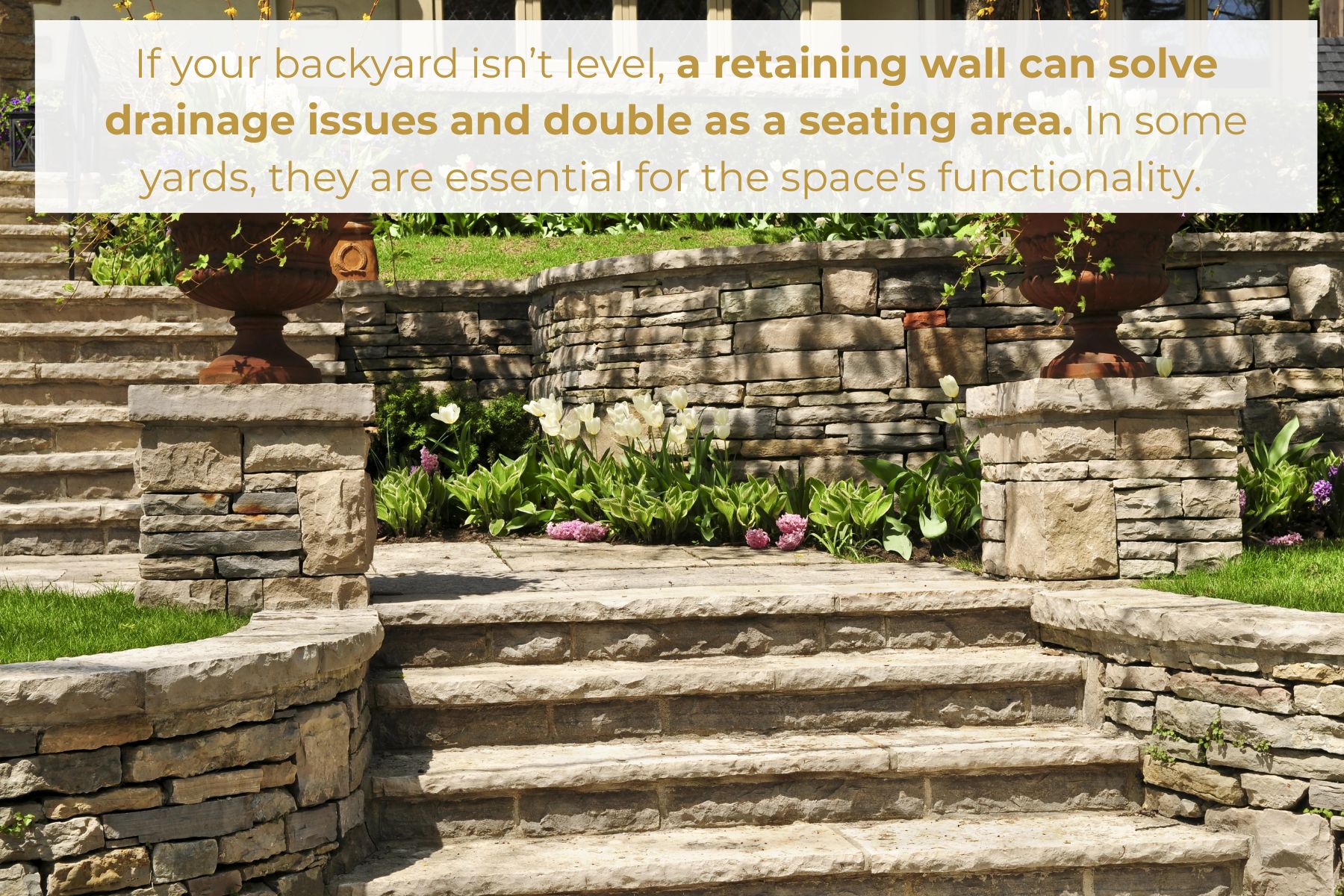
You can use natural stone or segmental block systems for your wall and add capstones for a finished look. You can also choose from numerous customization options.
If you'd like to see an example of how we’ve incorporated masonry into our designs at Keystone Custom Decks, check out this covered Trex deck and outdoor kitchen we created in Penn Yan, NY. Note the beautiful stone skirting on the deck. The skirting lends the design a grounded appearance, as well as adding texture and character.
Design & Installation Considerations
Okay. You’ve got your dream outdoor vision.
However, don’t rush into installation without understanding the details of deck design. That mistake will only earn you frustration and lost dollars.
Here are a few behind-the-scenes things that make or break a long-lasting masonry upgrade:
1. Frost-Heave Prevention
NY winters = freeze-thaw cycles. If your base isn’t prepped correctly, materials can shift or crack.
Sound installation uses gravel sub-layers, edge restraints, and compacted fill to prevent frost heave.
Moral of the story? Don’t cut corners on the base.
Because your patio shouldn’t move when the ground does.
2. Drainage
Masonry doesn’t love puddles, especially not in winter.
Patios and walls should slope slightly to allow for runoff. If your project includes steps, landings, or multiple levels, drainage is even more critical.
Water can be sneaky. Think ahead.
3. Style Cohesion
Don’t just copy what your neighbor did.
Work with your home’s existing aesthetic. Colonial? Lean toward brick. Rustic lakefront? Use natural stone. Modern farmhouse? Try large-format concrete pavers.
Your outdoor space should feel like an extension of your home. Not an afterthought.
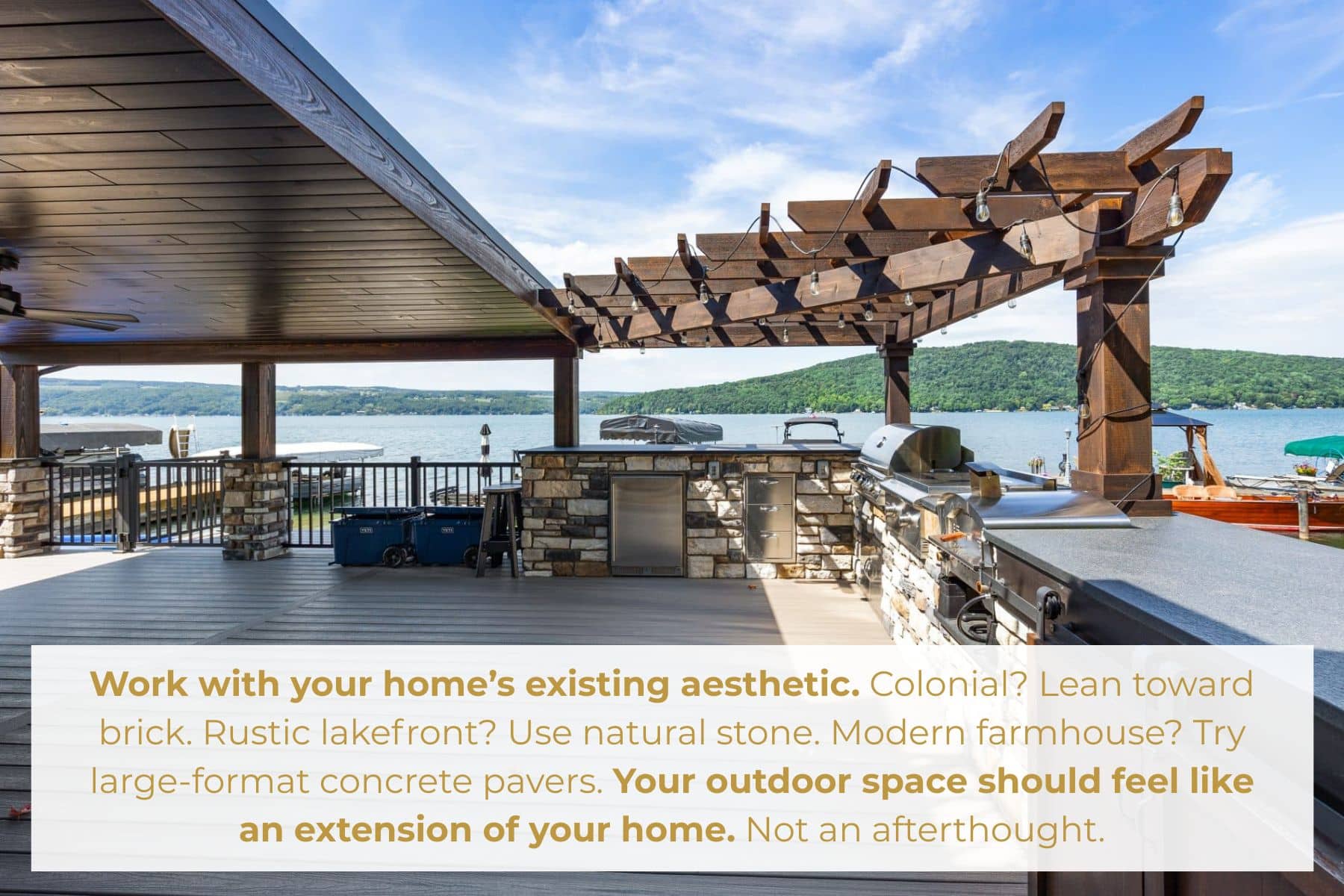
4. Budgeting & Phasing
Stone can be pricey. Labor too.
But don’t panic. Many homeowners tackle masonry upgrades in phases. For example, start with steps and a porch, then move to a patio, and add accents later.
Pro tip: Be honest about your budget with your contractor. They can suggest material swaps or phased plans.
5. NY Permit Basics
Some masonry projects require local permits, especially if you’re altering grade, adding structures, or working near property lines.
Keystone Custom Decks is familiar with NY building codes and will handle the paperwork for you. However, it’s smart to ask upfront.
Maintenance & Longevity
Stone’s tough. But not invincible.
A little maintenance goes a long way toward keeping your space looking great for years to come.
Here’s the rundown:
1. Sealing & Cleaning Tips
Stamped concrete and pavers benefit from sealing every few years. Sealing protects against stains, salt damage, and fading.
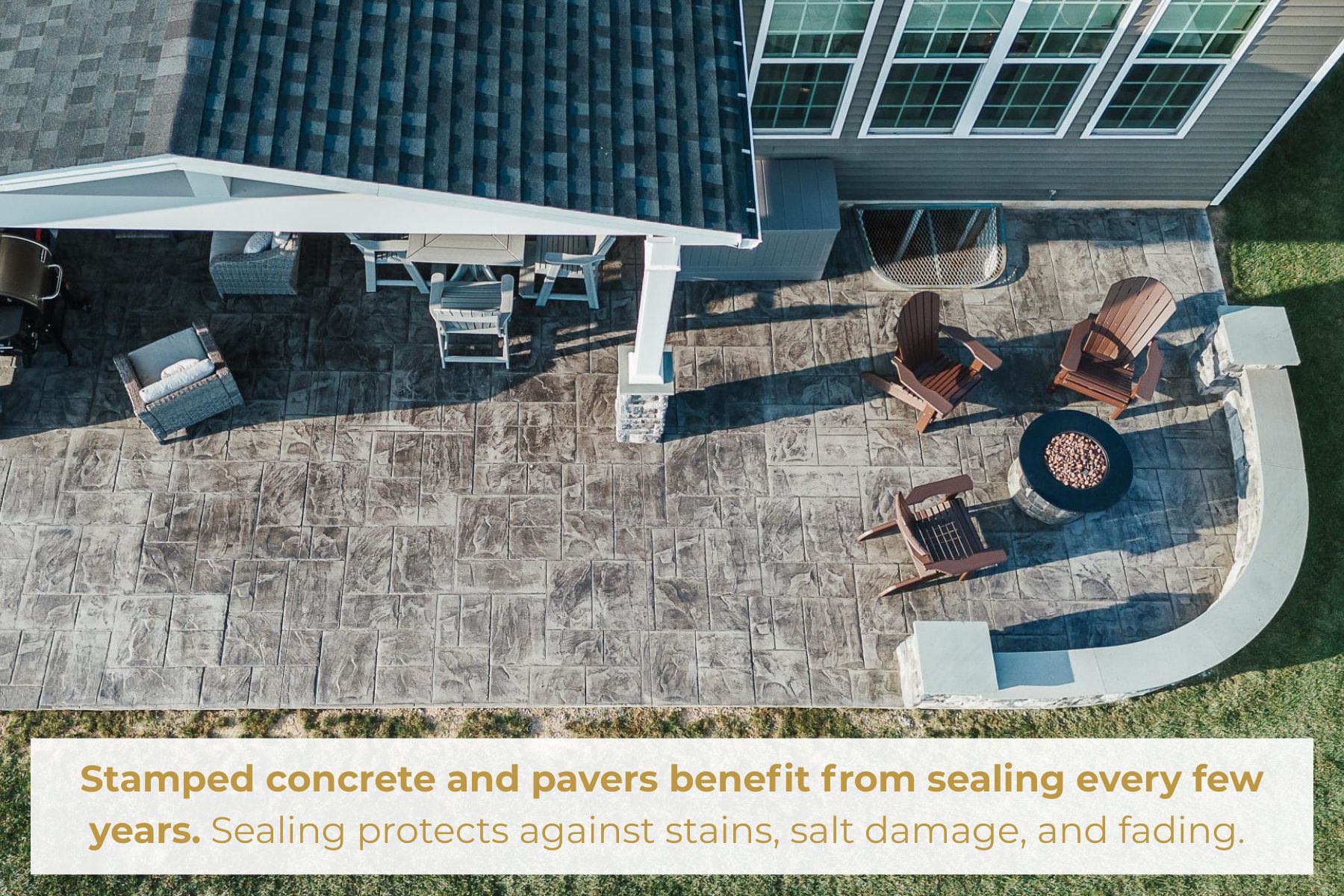
For cleaning, skip the power washer unless you have some training. It can etch the surface or blast out mortar—instead, use mild soap and a soft brush. Or hire a pro once a year.
2. Crack and Joint Repairs
Here’s the thing about cracks: they never stay small.
What starts as a tiny hairline can turn into a major problem—fast, especially in New York, where freeze-thaw cycles love to take a little water and turn it into a big headache. One crack lets in moisture, that moisture freezes, expands, and suddenly you’ve got big problems.
The fix? Stay ahead of it.
If you notice small cracks in your stone, concrete, or brickwork, seal them early. Most can be filled with flexible masonry caulk or patching compound. It’s quick, inexpensive, and saves you a lot of heartache (and hard cash) down the line.
3. Seasonal Care
Before winter, remove furniture, planters, and any other items that could trap moisture.
Avoid using harsh de-icers, as they can damage masonry. Choose pet-safe, concrete-safe alternatives.
Spring is an ideal time to inspect for damage and reseal if necessary.
Remember: if you treat your stonework right, it’ll treat you right back.
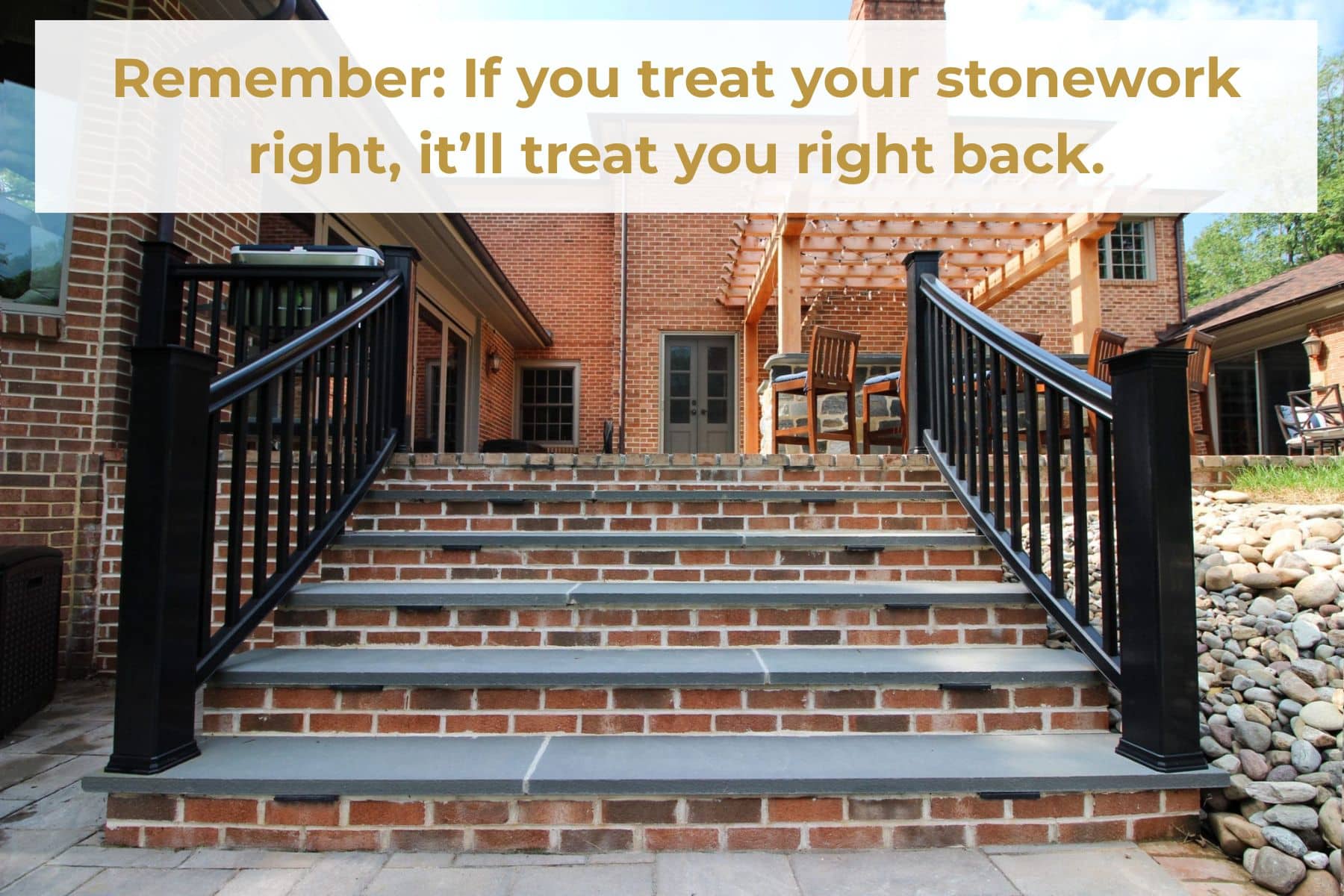
Conclusion
If you’re dreaming about adding stone, brick, or pavers to your outdoor space, don’t try to do it alone. Let Keystone Custom Decks help you plan, design, and build something you’ll love for decades. Because when it comes to masonry features for your outdoor living space in NY—you deserve something that’s built to last.
Keystone Custom Decks offers a variety of services, including:
Contact us today to start the conversation about your project!




